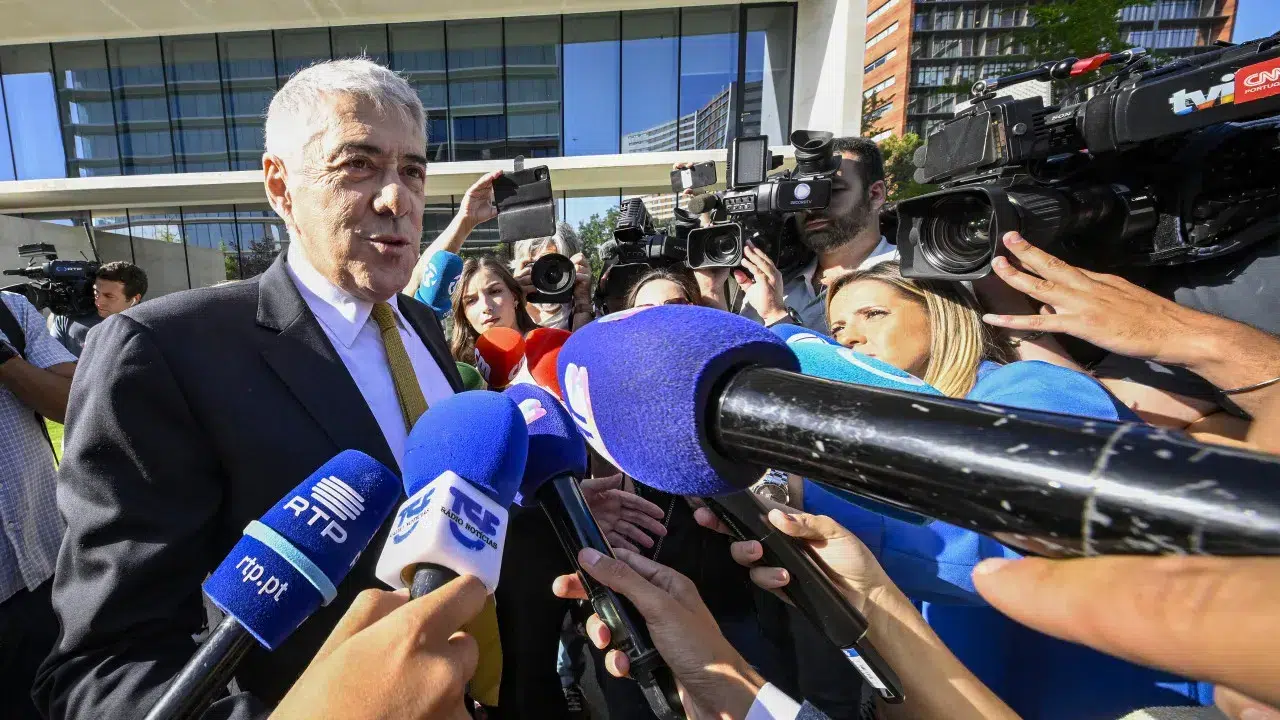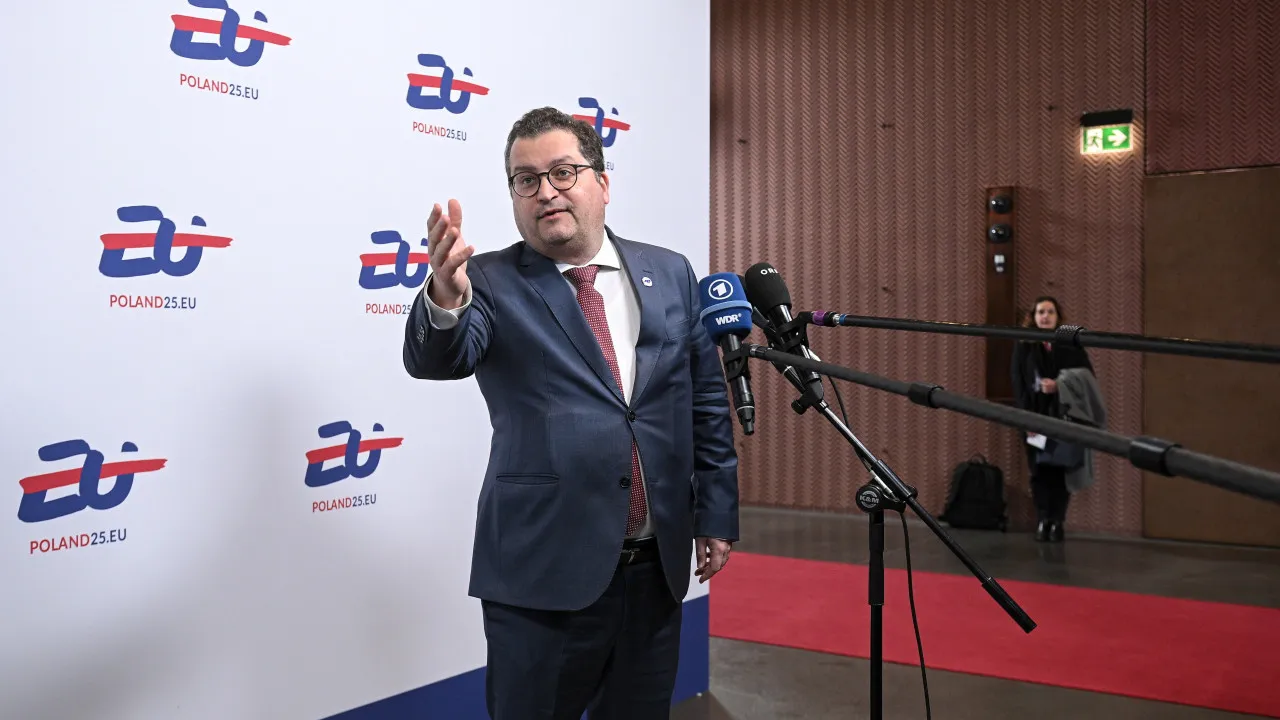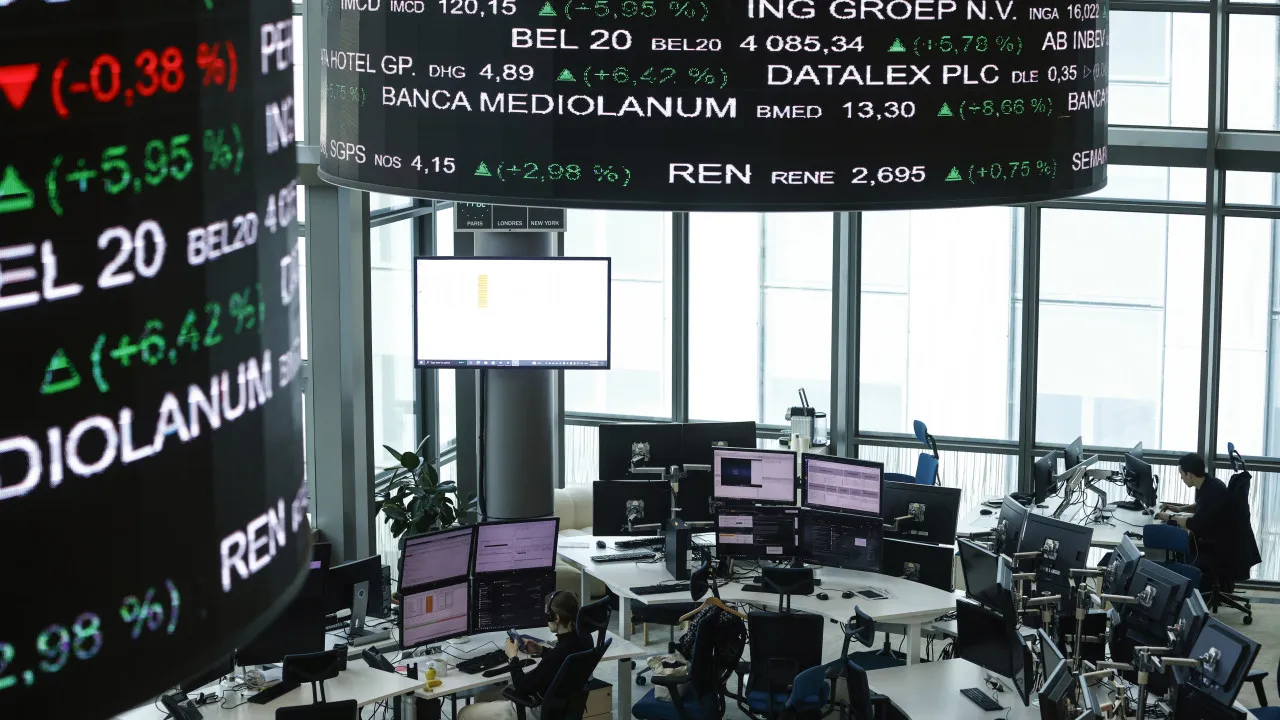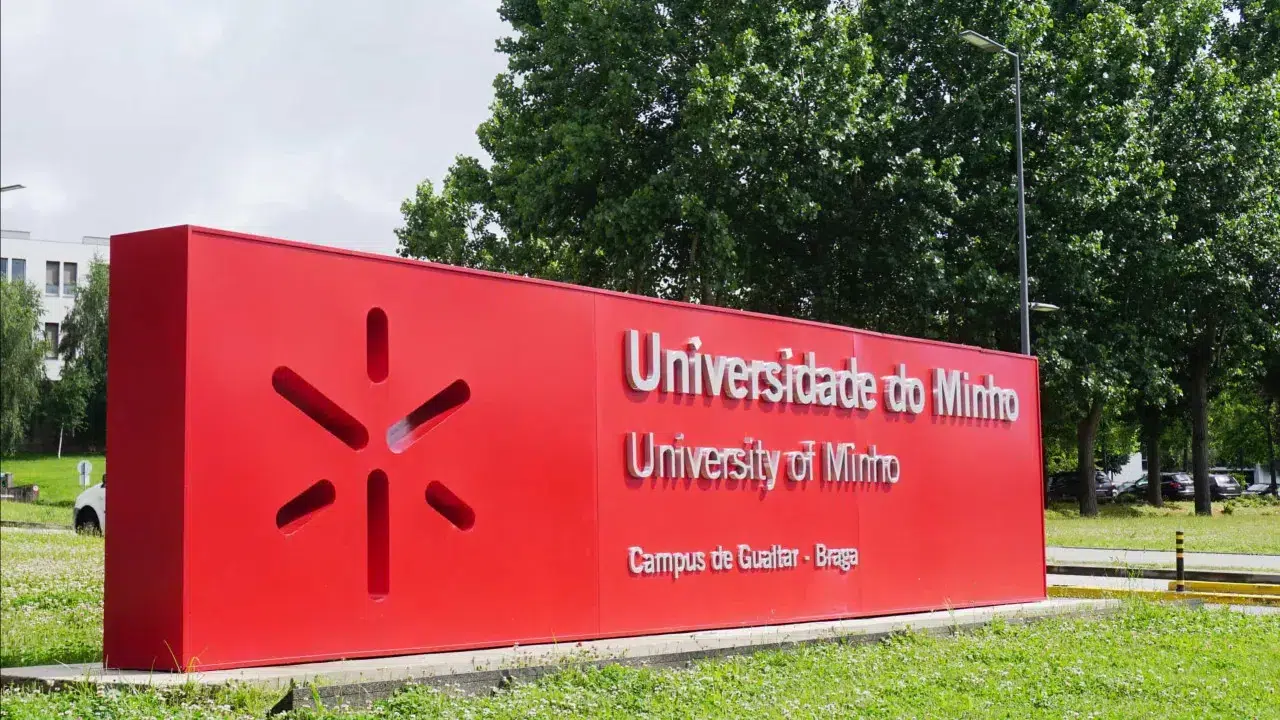The awards were presented this Friday at a ceremony during the New European Bauhaus festival, which runs until tomorrow at the Museum of Art and History in Brussels, Belgium.
Among the 20 winners of the New European Bauhaus awards are two Portuguese projects. The proposal by the Carrilho da Graça studio, entitled Hydroscape Lisbon and by architecture student Ioulia Vulgari, won in the “Reconnecting with Nature” category.
Meanwhile, the bio-integrated design project UrbanMYCOskin, by Portuguese Rita Morais, Polish Natalia Piorecka and Chilean Jennifer Levy, won in the “Shaping a circular industrial ecosystem and supporting life cycle thinking” category
Ioulia Vulgari’s project aims to create an urban park and water treatment center that opens a door to the public in the Port of Lisbon area, in order to use urban water resources.
“It’s a fantastic feeling. A lot of work has gone into this project,” the award-winning architecture student told DN on the sidelines of the ceremony. For the future architect, the biggest challenge of this project will be to show how important it is to “regenerate the waterfront, create public spaces around rivers and use water as a sustainable source”. The next step will be to show the project to universities for research.
Among the 20 winners of the New European Bauhaus awards are two Portuguese projects. The proposal by the Carrilho da Graça studio, entitled Hydroscape Lisbon and by architecture student Ioulia Vulgari, won in the “Reconnecting with Nature” category.
Meanwhile, the bio-integrated design project UrbanMYCOskin, by Portuguese Rita Morais, Polish Natalia Piorecka and Chilean Jennifer Levy, won in the “Shaping a circular industrial ecosystem and supporting life cycle thinking” category
Ioulia Vulgari’s project aims to create an urban park and water treatment center that opens a door to the public in the Port of Lisbon area, in order to use urban water resources.
“It’s a fantastic feeling. A lot of work has gone into this project,” the award-winning architecture student told DN on the sidelines of the ceremony. For the future architect, the biggest challenge of this project will be to show how important it is to “regenerate the waterfront, create public spaces around rivers and use water as a sustainable source”. The next step will be to show the project to universities for research.
Rita Morais, Natalia Piorecka and Jennifer Levy’s proposal aims to use organisms, such as mushrooms, that decompose organic matter to build a sustainable streetcar stop in Lisbon’s Martim Moniz. “This award is a fantastic motivation to continue working on our proposal. This award actually gives us a great opportunity to push these ideas further and come up with a solution, bring them to the world and to the wider public,” said Natália Piorecka in conversation with DN. The next step for UrbanMYCOskin will be its eventual implementation. “Now we can really start having conversations with cities, with communities, or even with work labs, where we can start developing this,” she adds.
The awards, which have been handed out since 2021, are part of the New European Bauhaus festival, an event that aims to give visibility to innovative concepts and projects that include sustainability, art and inclusion. The awards are divided into four categories: “Reconnecting with nature”; “Recovering a sense of belonging”; “Giving priority to the places and people that need it most” and “Shaping a circular industrial ecosystem and supporting life cycle thinking”.
European Commissioner Elisa Ferreira, present at the awards ceremony, said she wanted to “honor everyone who worked on the projects. It doesn’t matter if they win or not. They are part of a community that has done its work and made its proposals. They are offering something better to the world”,
This edition included projects from Ukraine for the first time and focused on countries with socio-economic difficulties. The 20 winners were chosen from 50 finalists and will receive up to 30,000 euros and a kit to help them communicate and develop their projects.
At the end of the ceremony, for the first time, a prize was awarded to Ukraine for the reconstruction of infrastructure destroyed by the war. “We are very grateful for your support. I think all the projects are relevant to Ukraine. They are united by spirit and we can feel the spirit of Ukraine. Those who have visited Ukraine can feel the energy in the air. We are fighting for our freedom and at the same time we are rebuilding our country even in war,” said Vsevolod Chentsov, Ukraine’s current head of mission to the European Union, before the awards ceremony.








